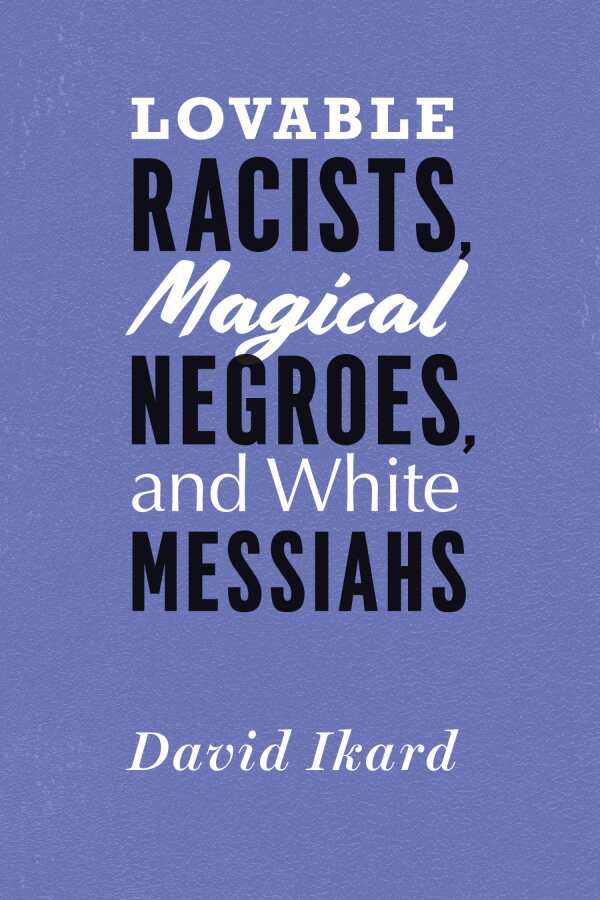Lovable Racists, Magical Negroes, and White Messiahs
Ikard’s book is an essential wake-up call to all white Americans who are not actively engaged in combating racism.
In Lovable Racists, Magical Negroes, and White Messiahs, David Ikard, director of Africana studies at the University of Miami, delivers a blunt account of white supremacy in American culture, and a searing indictment of those who help to prop racism up.
While notorious white terrorists and avowed racists play a role in Ikard’s book, they often serve as a foil for the more pervasive, and in some ways more dangerous, presence of white Americans who are “incredibly sincere in their racist reasoning.” Not being George Zimmerman, Ikard shows, is a low bar to set; such low expectations allow many white Americans to treat institutional racism either as imaginary or not their problem.
Ikard’s chapter-by-chapter dismantling of false racial archetypes is a bold response to every person tempted to declare that they have never used the n-word, but who balks at the demands of Black Lives Matter activists; who thinks of themselves as an ally, but who retreats into a defensive position whenever their complicity in racism is suggested. As Ikard shows, such “lovable racists” are everywhere: directing newscasts, tearing up at The Help, and even voting proudly for the first black president (if not understanding why he needed to align himself to Trayvon Martin).
Drawing both on recent, prominent news stories and on American art and rhetoric, Ikard shows that popular media have always had an interest in maintaining the fallacy that racism is a some-people problem, rather than an ill that all people of privilege have a responsibility to dismantle. The words of activists from James Baldwin to DeRay Mckesson help to show how invested “well meaning” white Americans tend to be in preferencing the status quo over black lives.
Ikard’s work is brutally fair, showing how all of those who turn away when institutional racism is mentioned have a role in the continued oppression, and deaths, of black Americans, from Tamir Rice to the victims of the Charleston shooting. It also includes a brief autopsy of the 2016 election that puts President Barack Obama’s successor into proper context.
Ikard’s book is both timely and necessary, serving as an essential wake-up call to all white Americans who are not actively engaged in combating racism.
Reviewed by
Michelle Anne Schingler
Disclosure: This article is not an endorsement, but a review. The publisher of this book provided free copies of the book to have their book reviewed by a professional reviewer. No fee was paid by the publisher for this review. Foreword Reviews only recommends books that we love. Foreword Magazine, Inc. is disclosing this in accordance with the Federal Trade Commission’s 16 CFR, Part 255.

